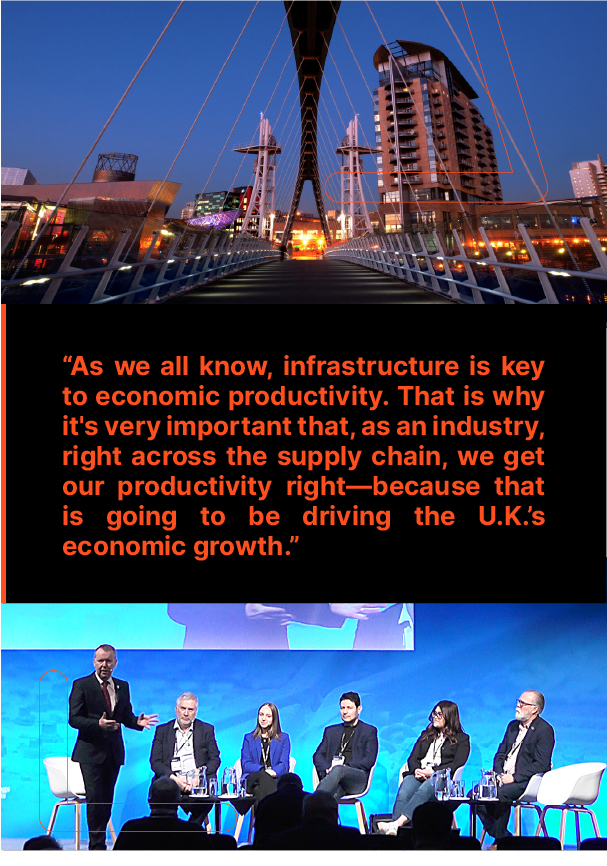
The sector faces significant challenges: aging transport networks, a productivity crisis with up to 25% of project costs lost to inefficiencies, and the need to maintain as well as expand existing assets. Modern technologies like AI, digital twins, and predictive analytics offer potential, but without widespread adoption and the right workforce skills, their impact will remain limited. A strategic shift is emerging—particularly in road investment—towards renewal over expansion, but this demands a complete rethink of planning, funding, and execution strategies.
Beyond operational challenges, deeper structural issues continue to hinder progress. The U.K.’s decarbonisation goals necessitate smarter, greener infrastructure, yet efforts are obstructed by bureaucracy, inconsistent project pipelines, and a fragmented supply chain. A lack of long-term funding certainty makes it difficult for contractors to plan and invest in workforce development. Legal and planning processes, such as the Development Consent Orders, are often bogged down in delays and litigation, deterring investment and stalling progress. Nonetheless, the opportunity is substantial. If the sector can overcome these barriers, it has the potential to drive economic growth, create jobs, and support the transition to a low-carbon future—delivering on promises that have long been deferred.

The sector faces significant challenges: aging transport networks, a productivity crisis with up to 25% of project costs lost to inefficiencies, and the need to maintain as well as expand existing assets. Modern technologies like AI, digital twins, and predictive analytics offer potential, but without widespread adoption and the right workforce skills, their impact will remain limited. A strategic shift is emerging—particularly in road investment—towards renewal over expansion, but this demands a complete rethink of planning, funding, and execution strategies.
Beyond operational challenges, deeper structural issues continue to hinder progress. The U.K.’s decarbonisation goals necessitate smarter, greener infrastructure, yet efforts are obstructed by bureaucracy, inconsistent project pipelines, and a fragmented supply chain. A lack of long-term funding certainty makes it difficult for contractors to plan and invest in workforce development. Legal and planning processes, such as the Development Consent Orders, are often bogged down in delays and litigation, deterring investment and stalling progress. Nonetheless, the opportunity is substantial. If the sector can overcome these barriers, it has the potential to drive economic growth, create jobs, and support the transition to a low-carbon future—delivering on promises that have long been deferred.


Unlock the secrets to transforming infrastructure performance with the summit flipbook.
Dive into valuable insights on regional infrastructure trends, gain expert perspectives from this year’s inspiring speakers, and explore actionable strategies to enhance your project performance.
Access speaker session videos to hear directly from the inspiring voices that shaped this year’s discussions.
Sign up to be part of a growing network of industry leaders and innovators shaping the future of infrastructure. Register to receive updates on events, expert insights, and exclusive resources tailored to your interests. Stay connected, stay informed, and help us drive transformation together.
We value your privacy. By submitting this form, you consent to us collecting, storing, and processing your personal data in accordance with GDPR. Your information will be used solely for to receive updates, news, and event information from the IPA team, outlined in our Privacy Policy and will not be shared without your consent. You may withdraw your consent at any time by contacting the team here